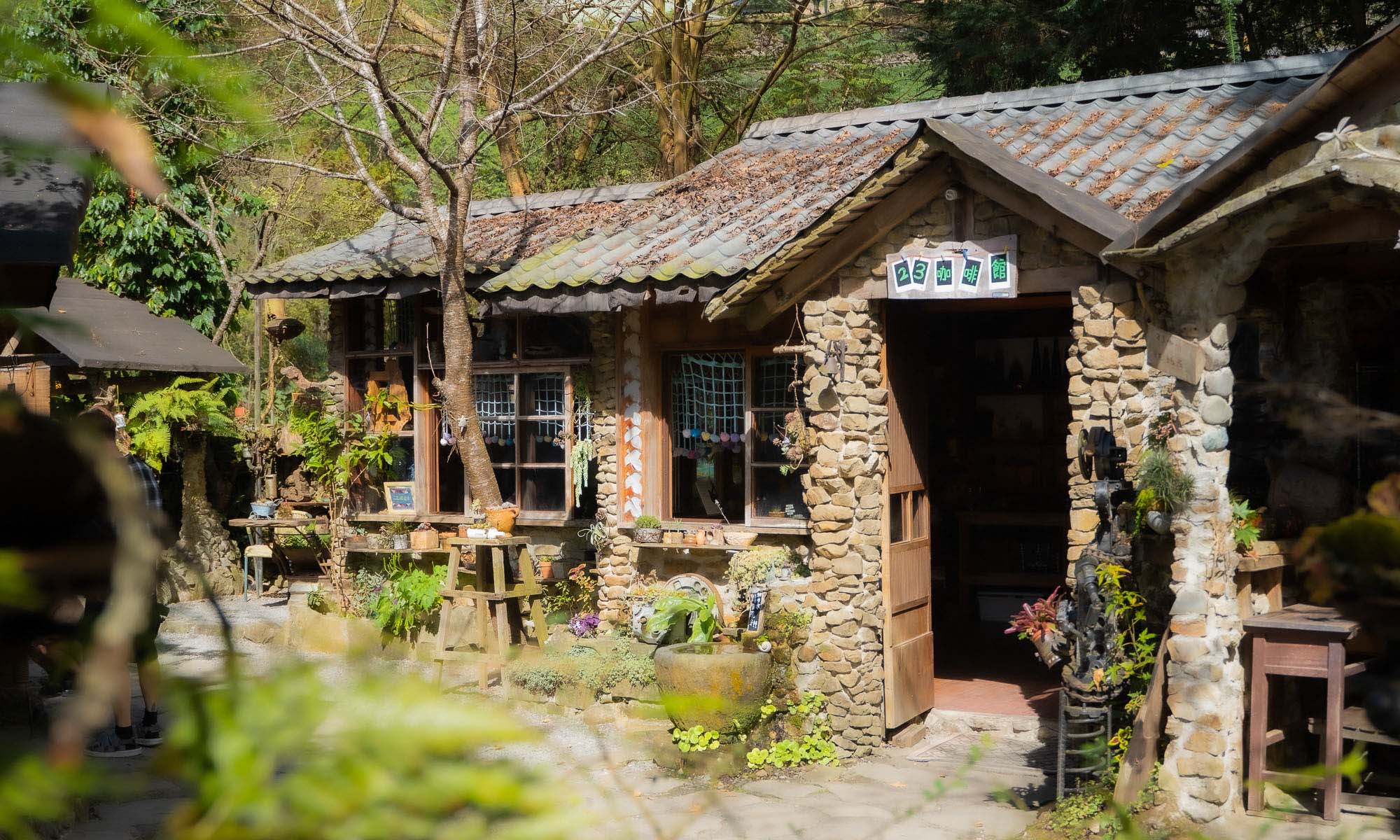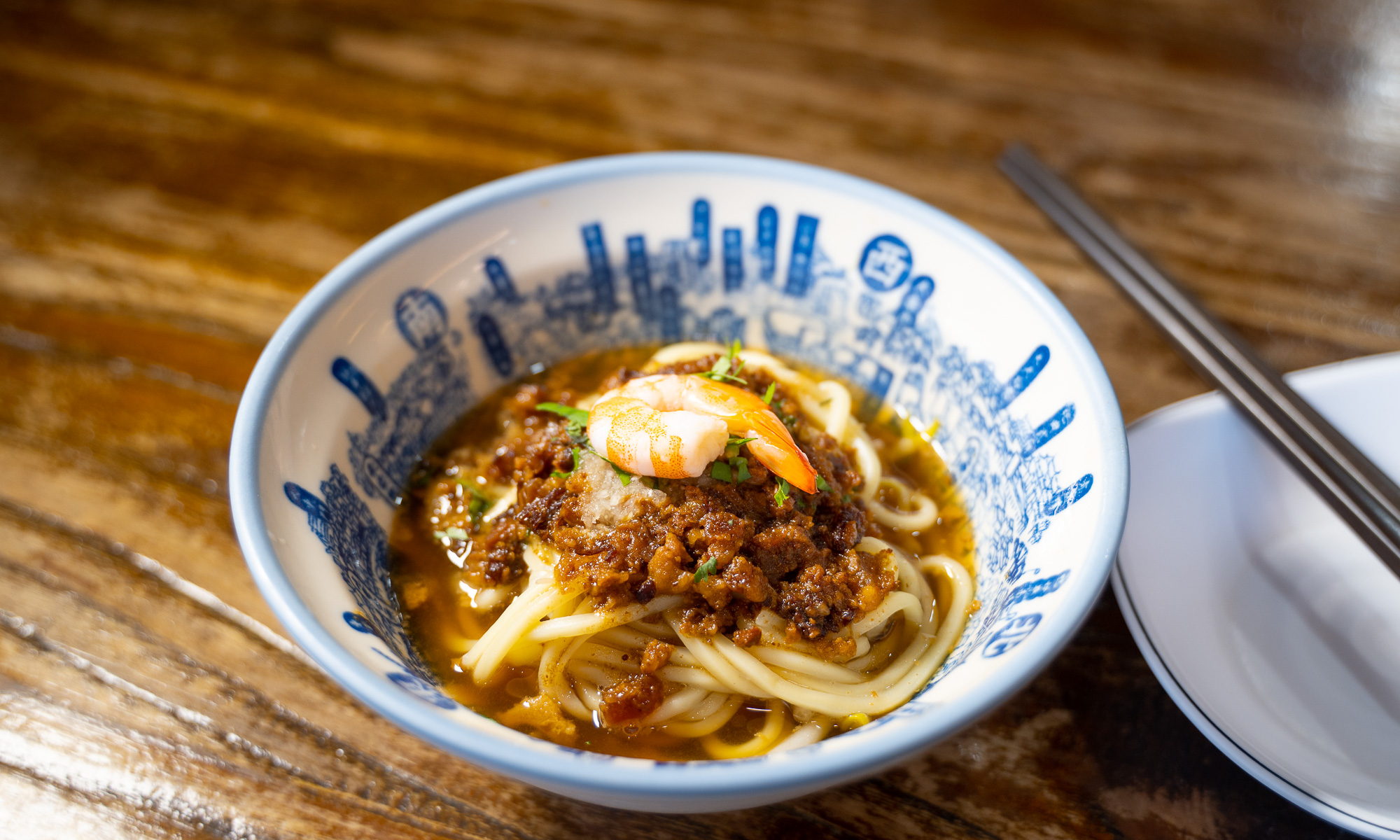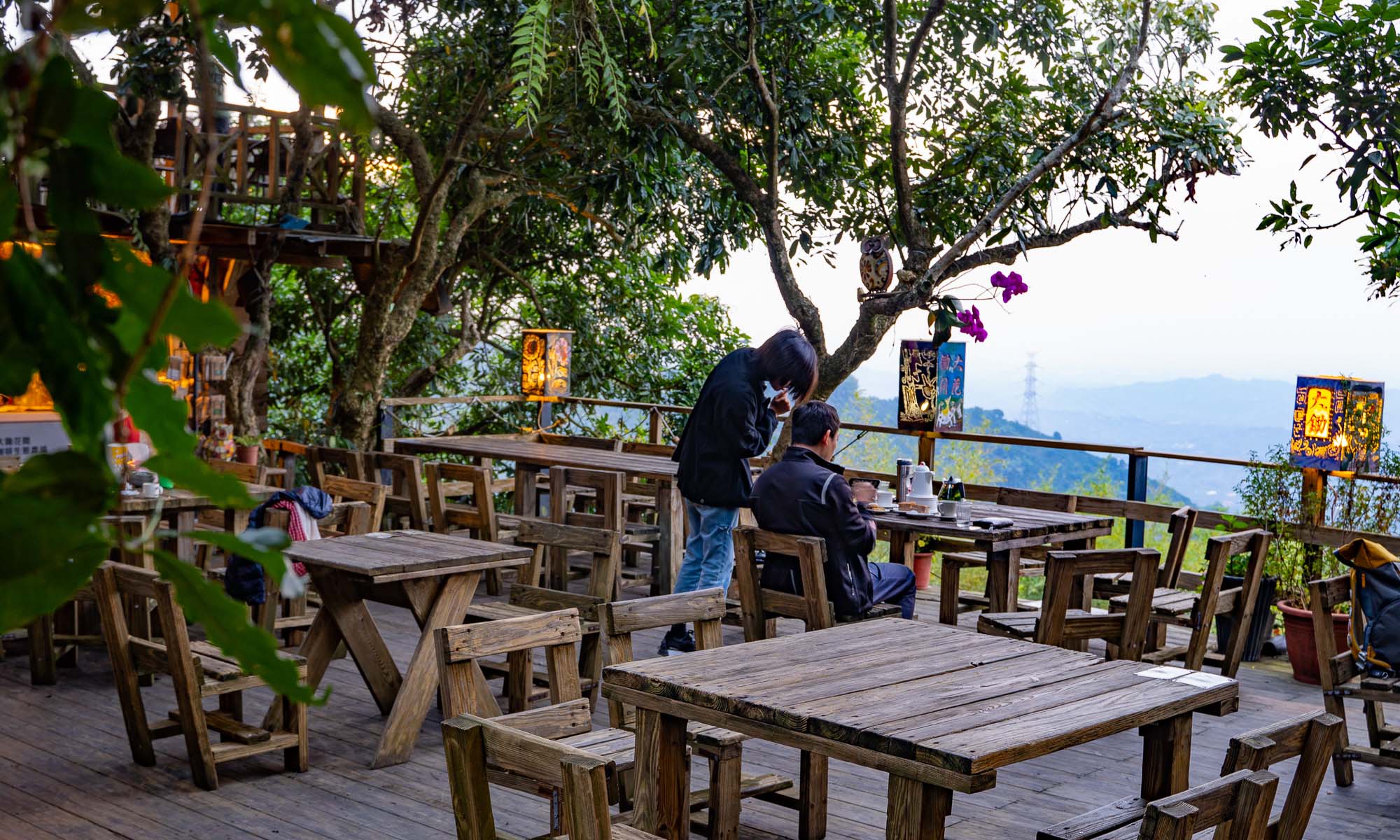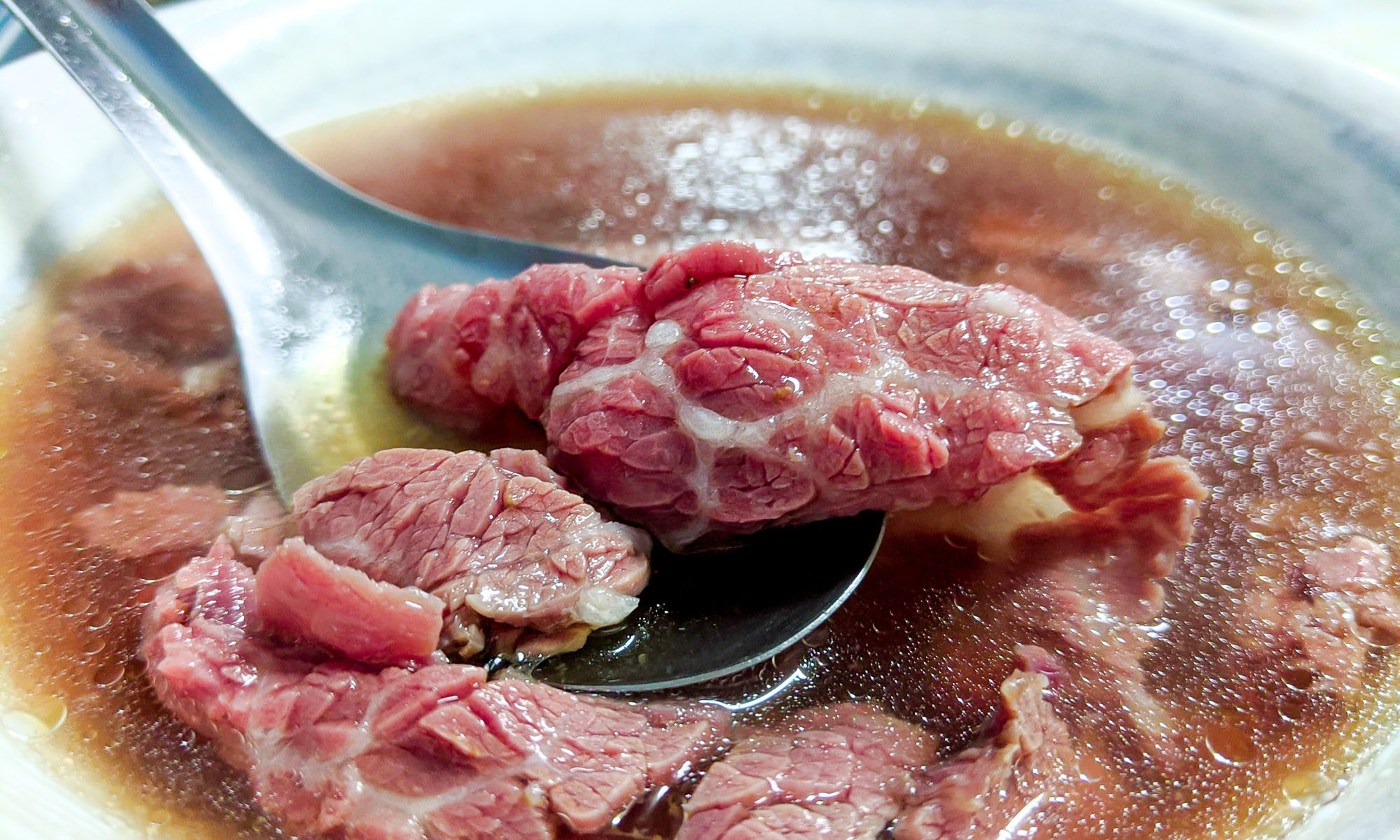AJANG HOME 23 COFFEE HOUSE AND YUYUPAS CULTURAL PARK
The mountainous region of Alishan is known for its natural vistas—a magical forest with sacred trees, a sea of clouds, and one of the oldest and more precarious alpine railways in the world—however, its steep terrain also provides a superior environment for both high mountain teas and award-winning coffee beans. Some farms have started producing both products, like the Leye (Lalauya) Village’s Bo Xiang Tea Tea Company. Their unroasted coffee beans have fetched prices as high as US$1,400 per pound in 2021, rivaling the price of previous world-record holding beans.
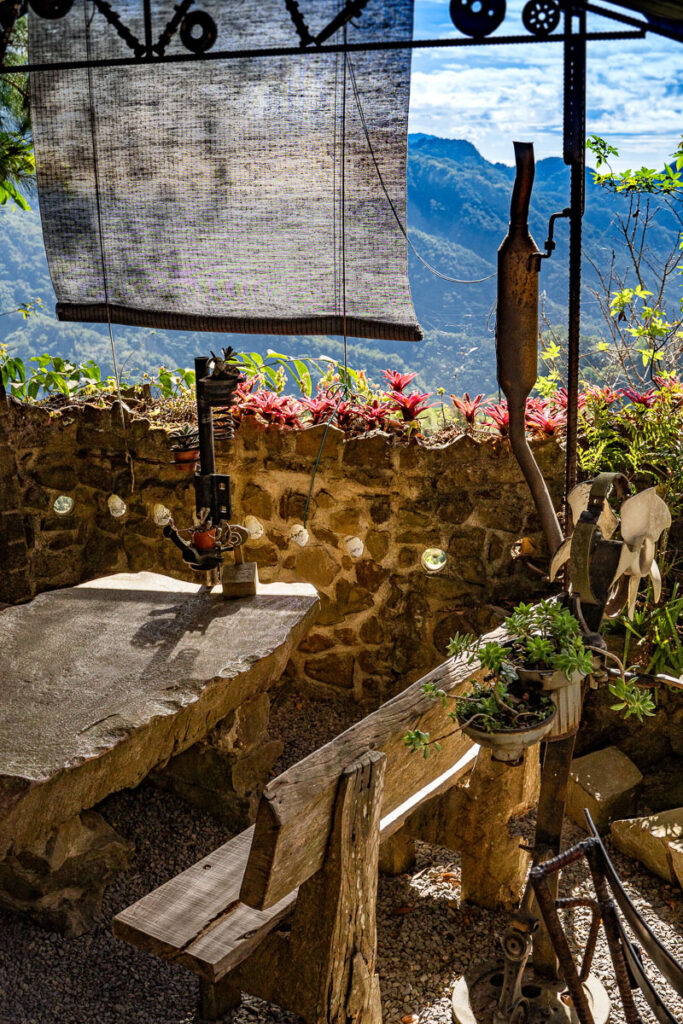
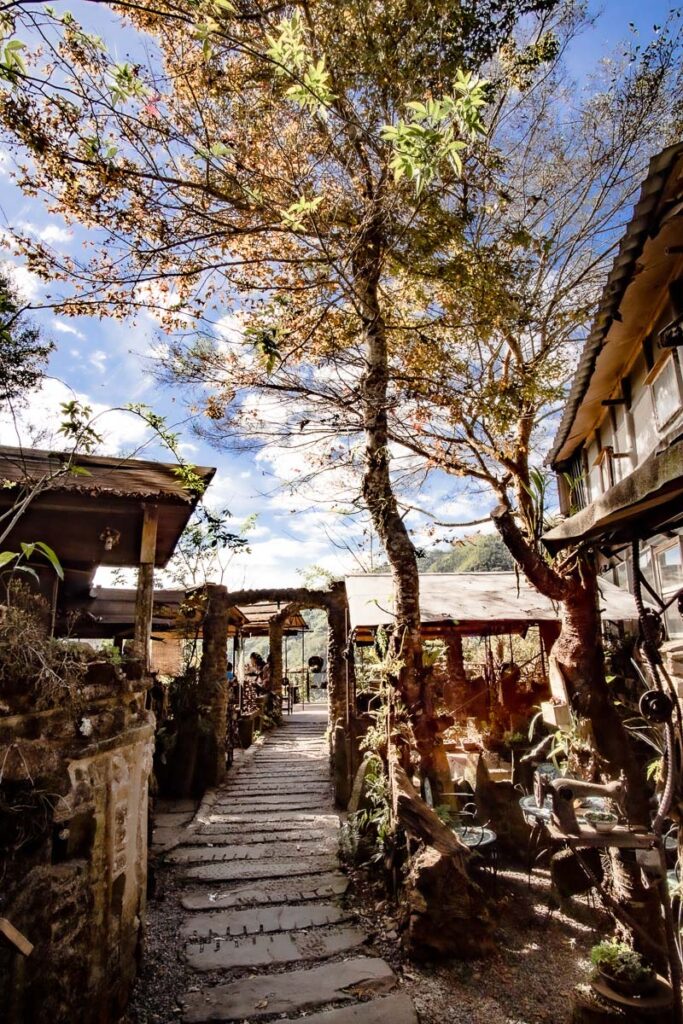
A quaint walkway leads to the outdoor sitting area. (right)
The Tsou Tribe, the largest indigenous group in Alishan, has implemented eco-tourism as a means of promoting local tradition and culture. After consecutive natural disasters severely damaged Tsou mountain tribal villages, younger generations have been moving home from the city to rebuild and revitalize the local economy. A-Jang, one of the returning younger generation and owner of Ajang Home 23 Coffee House, left his high paying job working for an American yacht company, to return home. His cafe, a dreamy stone coffee house built out of salvaged materials from the mountainside, has a sprawling view of the surrounding mountains, and is adorned with curious handmade art. He completed the cafe on his 23rd marriage anniversary with his wife as a commemoration and celebration.
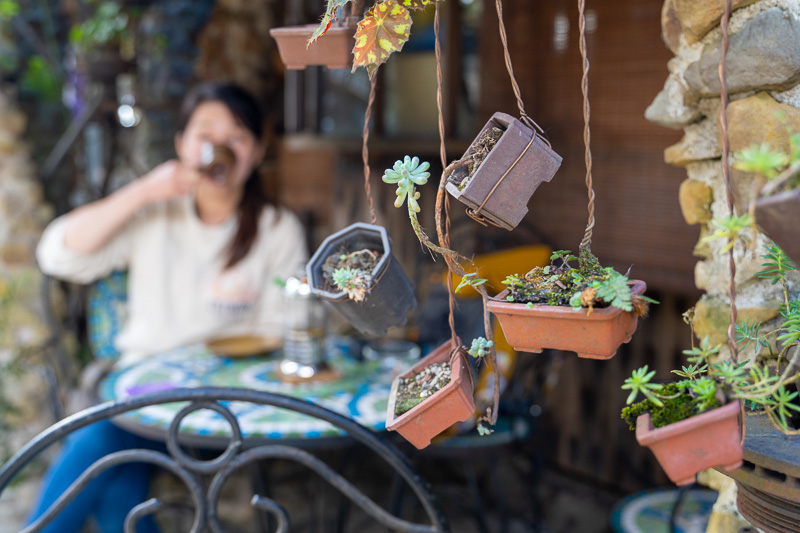
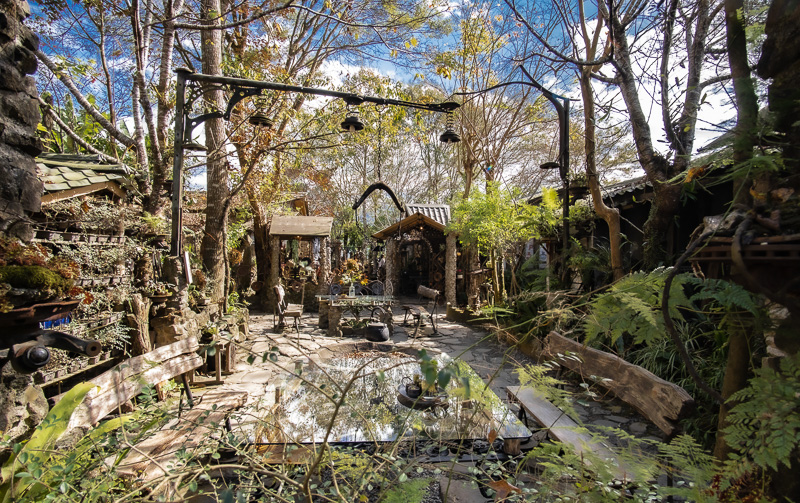
The courtyard of Ajang Home 23 welcomes natural foliage into the mix. (right)
Built after the 2009 hurricane, Yuyupas Cultural Park is a leading effort to harness the Tsou tribe’s cultural creativity and natural environment. “Yuyupas”, meaning abundance and blessed in the Tsou language, uses organic fertilizers and natural farming methods to produce high quality tea and coffee. Their Alishan coffee beans are often the recipients of awards and have been the official beans of Taiwan Specialty Coffee Association’s barista competitions for the past four years.
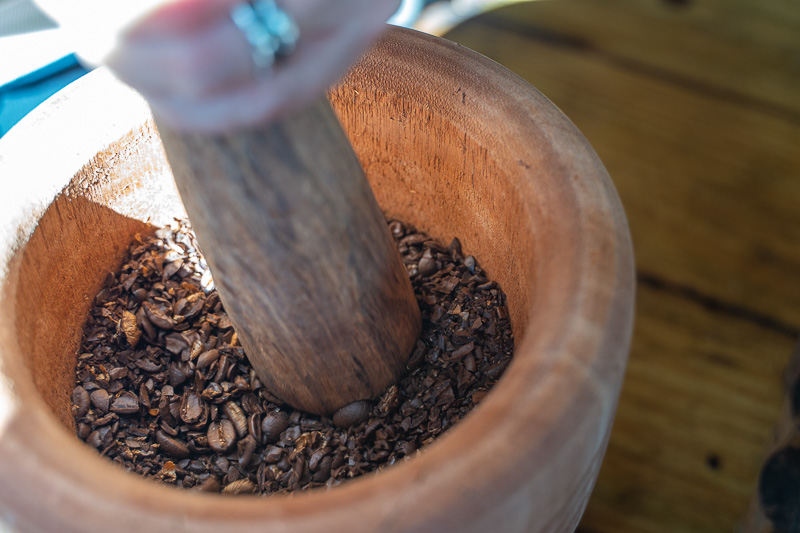
One of the highlights unique in Yuyupas is the “unplugged coffee making” experience, where the Tsou make coffee without electricity, from cleaning the coffee fruit, coffee bean roasting, grinding and finally making the perfect cup of coffee. It’s a testament to what is possible if only we put our minds to it.

